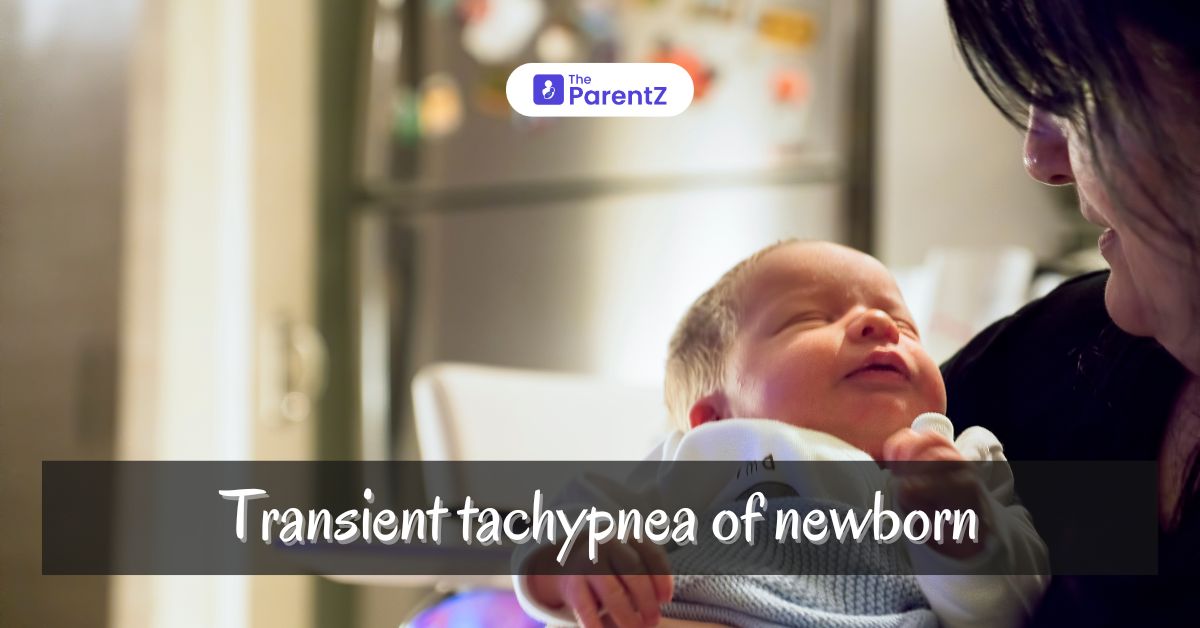What is transient tachypnea of newborn?
Transient means for a short period of time while tachypnea mean fast breathing. So, transient tachypnea of newborn refers to a condition where your baby has fast breathing for a short period of time immediately after birth. It usually appears within 2 hours of birth and resolves by 24 hours. Sometimes it may last up to 72 hours but rarely longer. It has completely recovery and no long term problems are associated.
Rapid breathing may look alarming in a baby but transient tachypnea of newborn is usually not dangerous. It can be treated with oxygen and nutrition support. Though transient tachypnea is not dangerous, your doctor might want to evaluate your child to make sure that there are no other more serious causes which are leading to tachypnea. Your baby may need careful observation and assessment in a hospital.
What causes transient tachypnea of newborn?
When your baby is in utero or the belly of the mother, the lungs of the baby are collapsed and filled with a fluid. This fluid helps in the development and maturation of lungs. During labour, this fluid is either squeezed out of the lungs or absorbed by the blood vessels and the lymphatics present. When the baby takes the first breath of air, the remaining fluid is absorbed by the capillaries present in the lungs. In transient tachypnea of newborn, the fluid has not been cleared as expected. Hence, the baby does not get enough oxygen from the air which is being inhaled and needs to breathe faster to meet the oxygen demands.
Which babies are more likely to get transient tachypnea of newborn?
Babies are more likely to get transient tachypnea of newborn, if the lungs aren’t mature. This includes :
- Baby born early or prematurely
- Baby born with pre planned cesarean section where the mother did not undergo normal labour and hormonal changes
- Baby of a mother with asthma
- Baby of a mother with diabetes
Does transient tachypnea of newborn lead to long term health problems
No. Transient tachypnea of newborn does not lead to any significant long term health problems if treated immediately. Although, it should be kept in mind that if untreated it can lead to respiratory failure in the baby.
What are the signs and symptoms of transient tachypnea of newborn ?
- Fast breathing of the baby, more than 60 breaths per minute
- Grunting while breathing out or exhaling
- Cyanosis or bluish discoloration around the nose and the mouth
- Flaring of nostrils while breathing
- Skin pulling in between ribs while breathing
Can other conditions cause tachypnea in newborn ?
There are several conditions which can cause tachypnea in a newborn. Most of these are dangerous conditions which need treatment immediately. These will be kept in mind by a doctor while evaluating your child for transient tachypnea of newborn. The conditions leading to tachypnea include:
- Respiratory distress syndrome
- Meconium aspiration syndrome
- Sepsis of the newborn
- Diaphragmatic hernia
- Pneumonia
- Choanal atresia
- Tracheoesophageal fistula
When should I call a doctor?
If your baby was not born in the hospital but was delivered at home or in a nursing centre, you should be aware of the signs of transient tachypnea of newborn and know when to call a doctor. You should consult a doctor immediately if:
- Your baby has trouble breathing
- Your baby is grunting while breathing
- The baby looks lethargic
- The baby’s mouth or nose is turning blue





Be the first one to comment on this story.